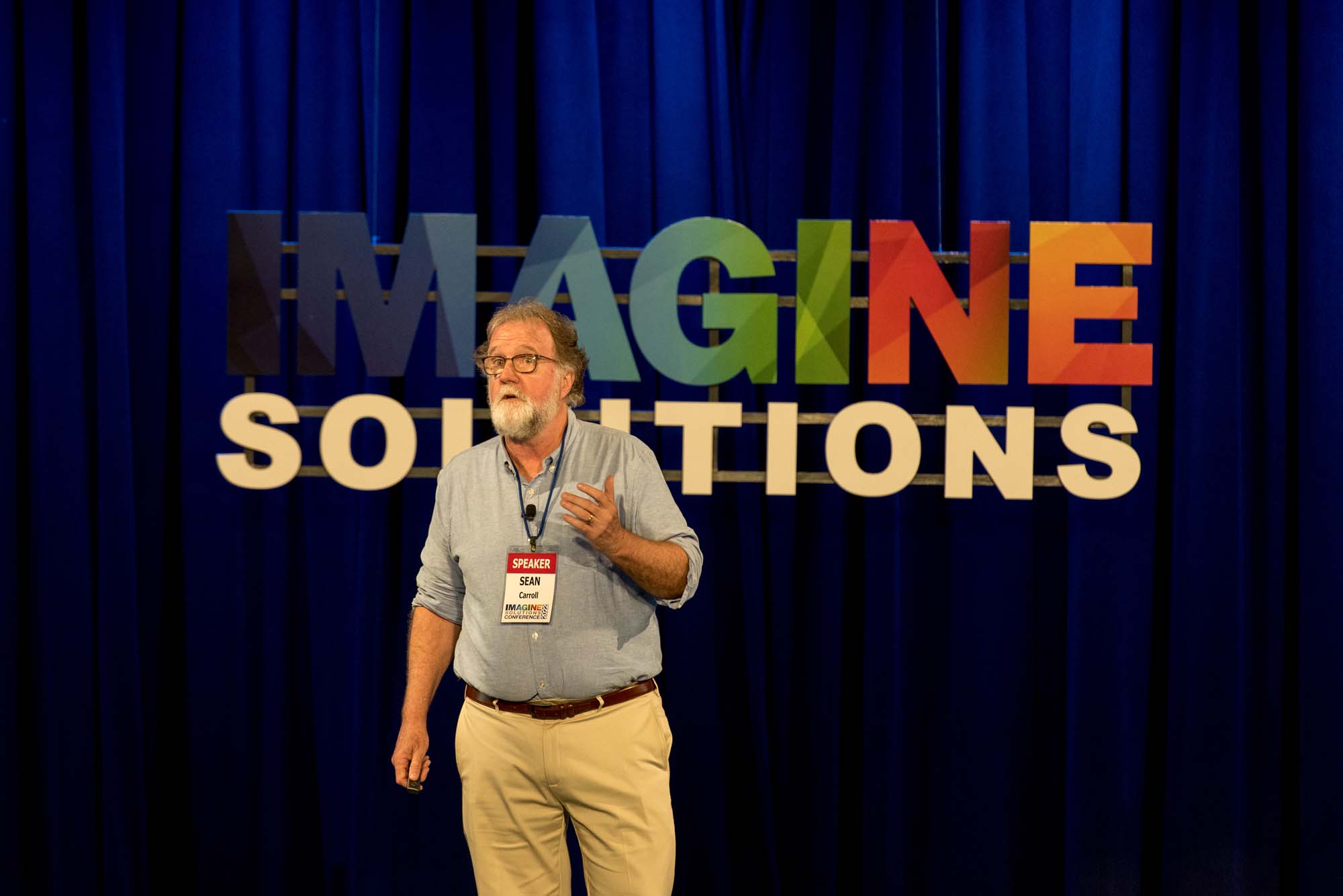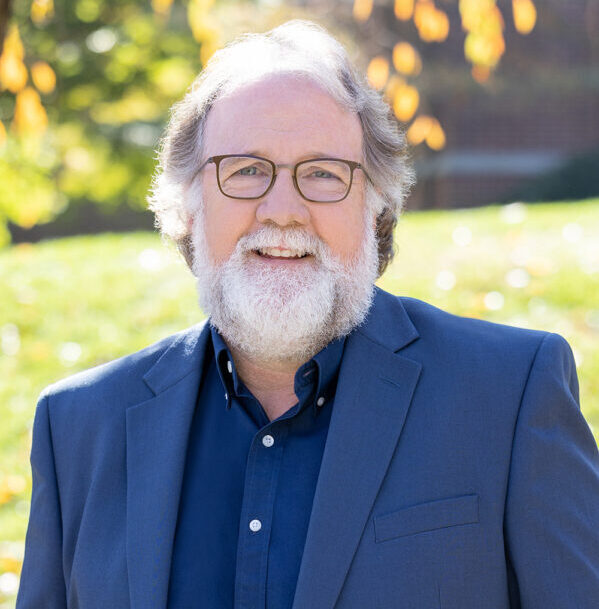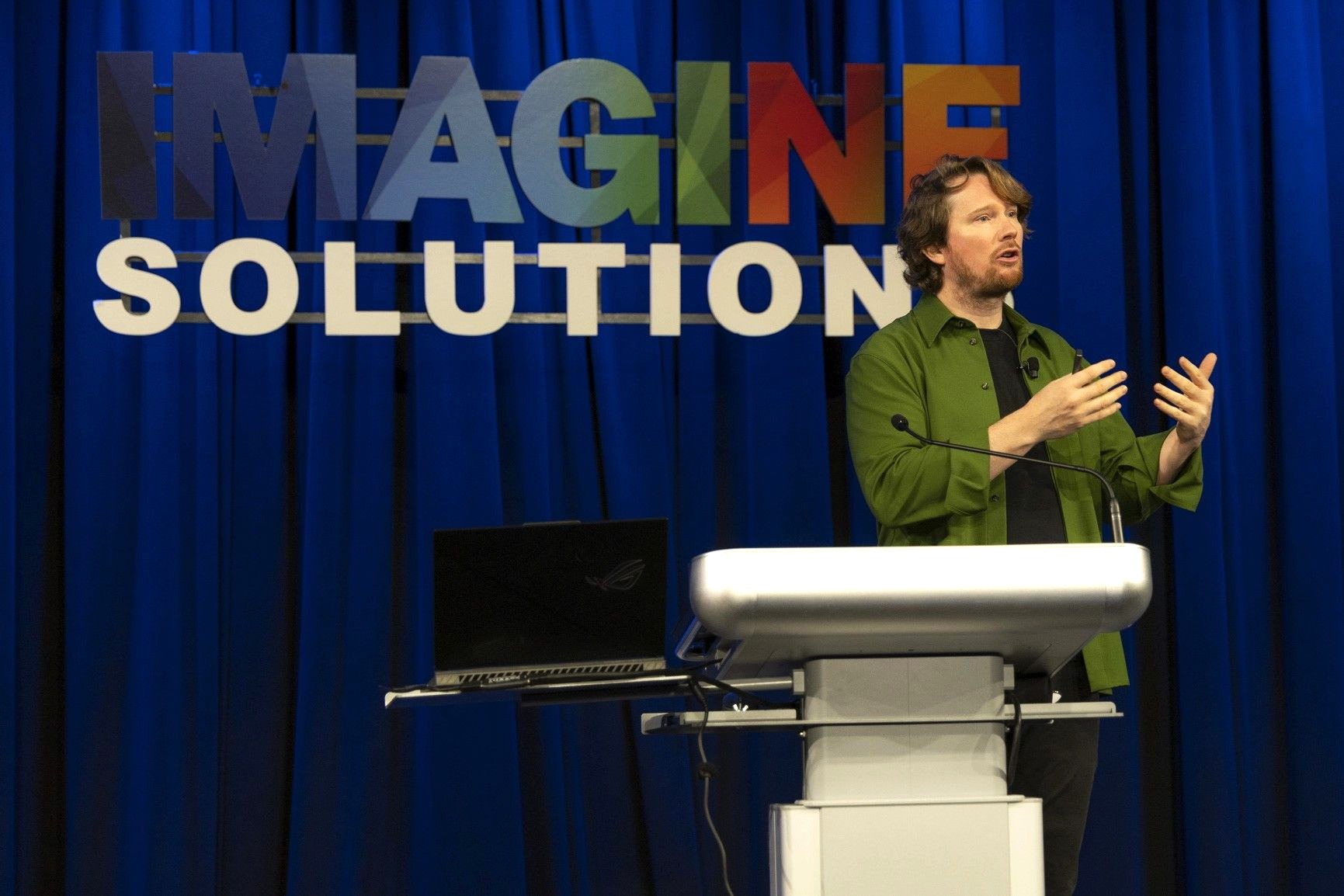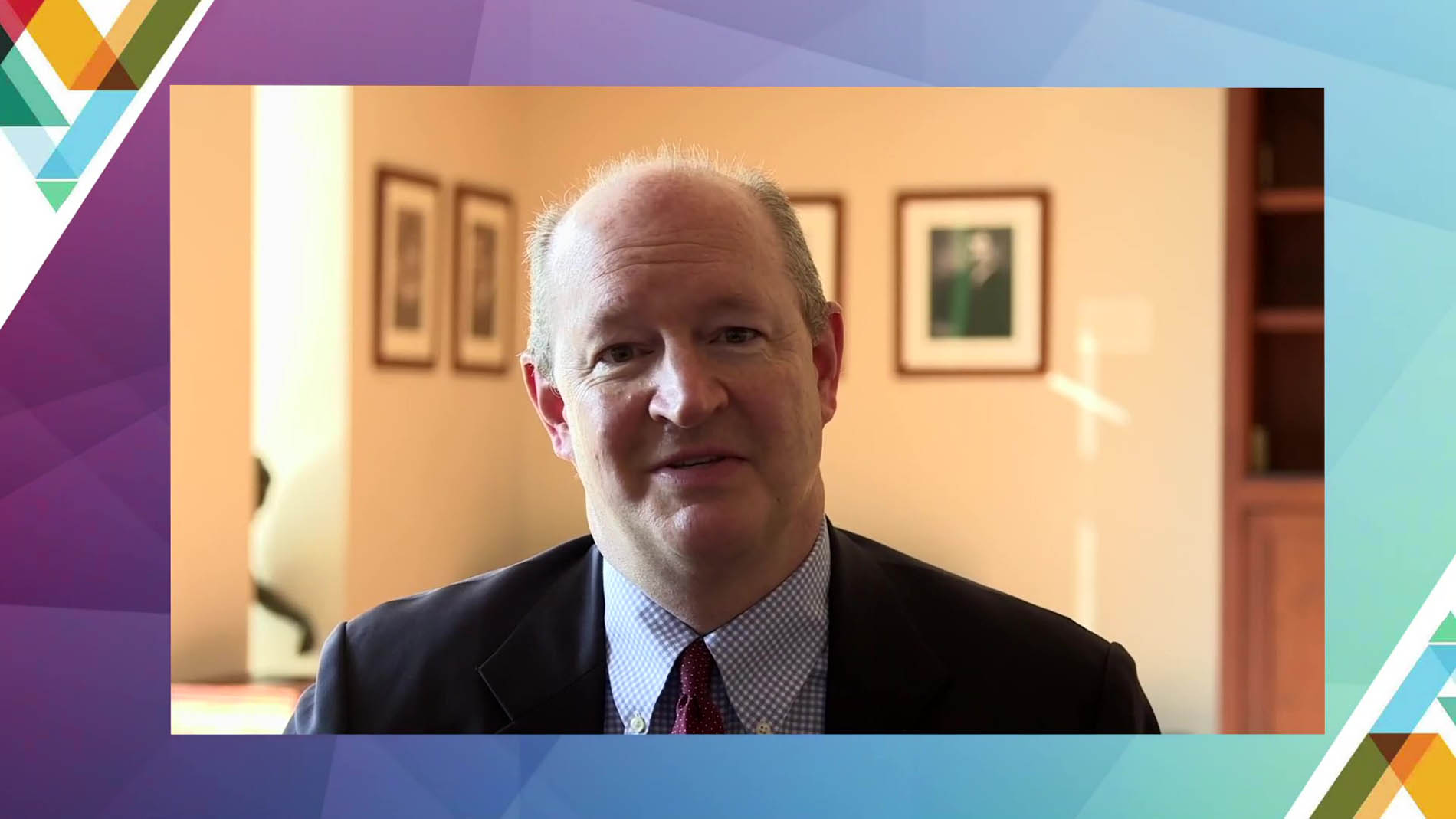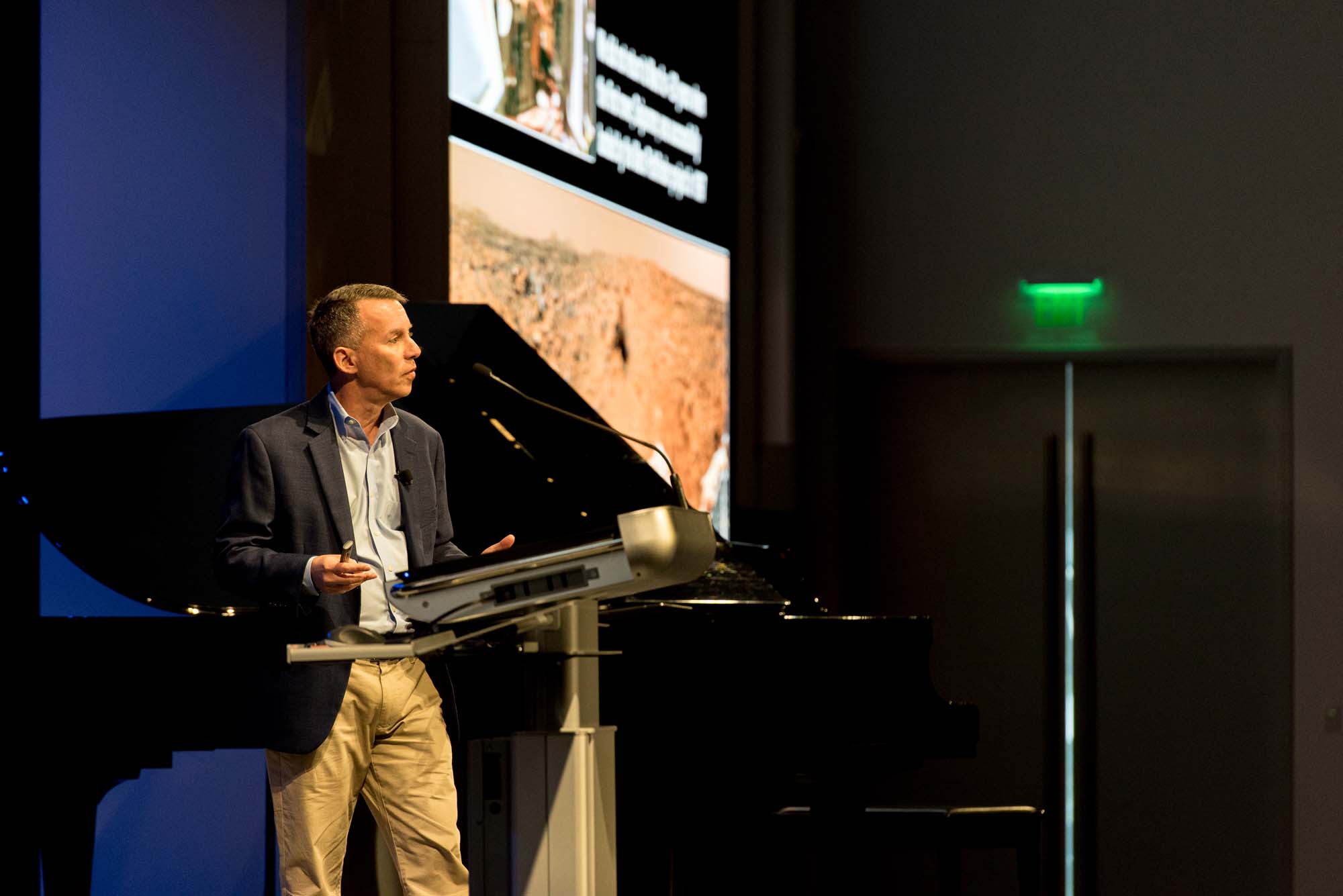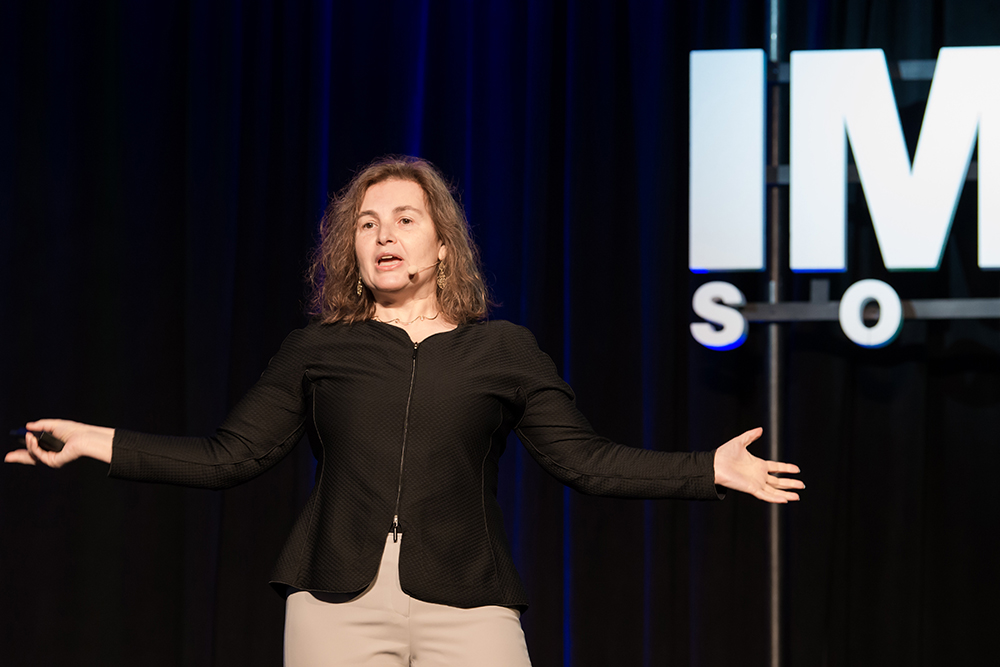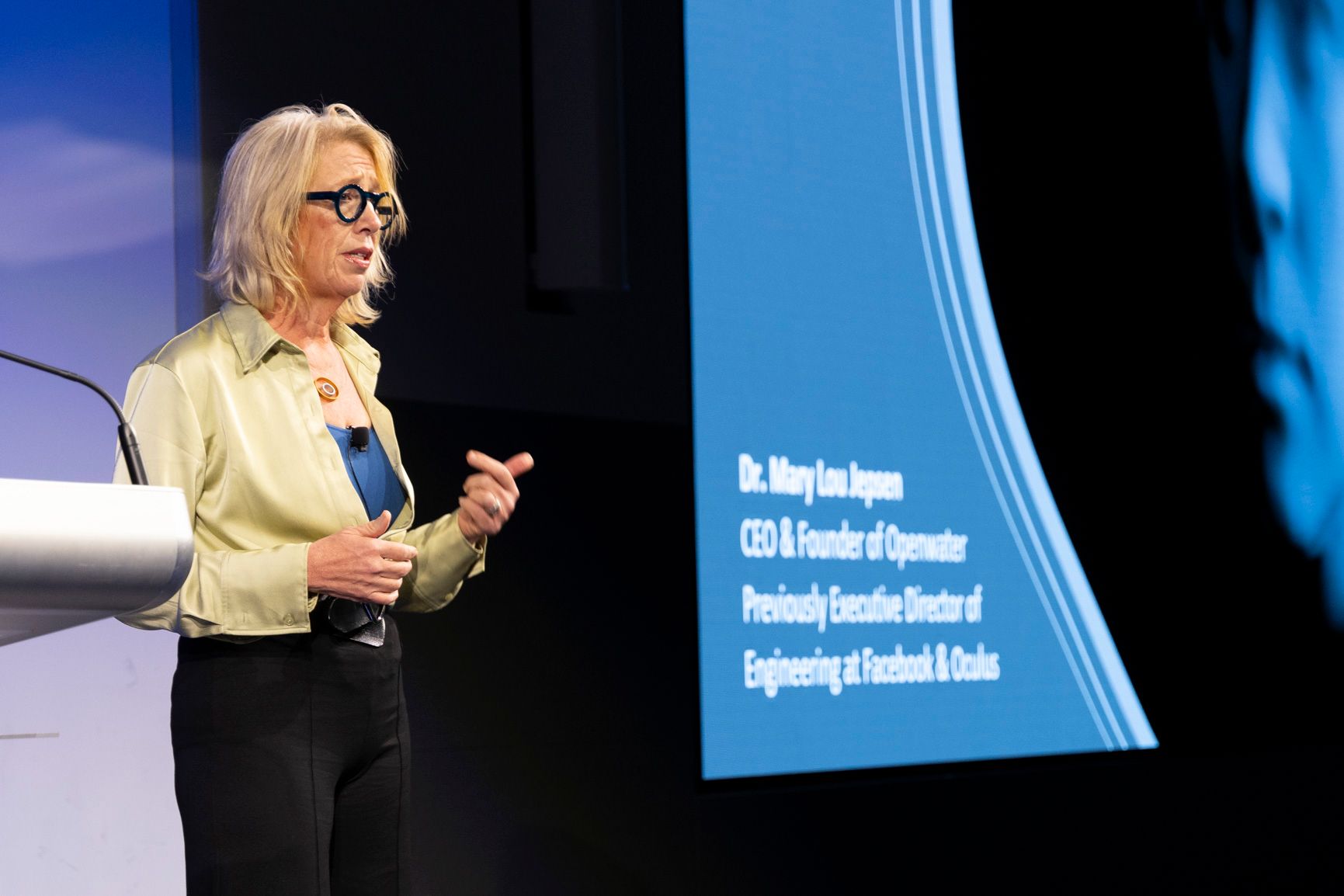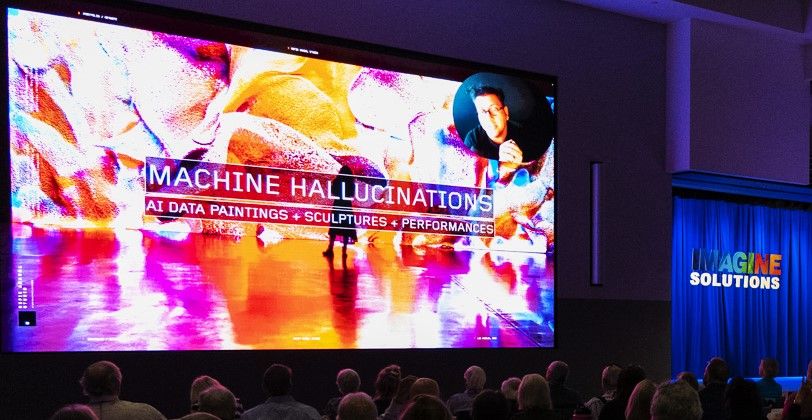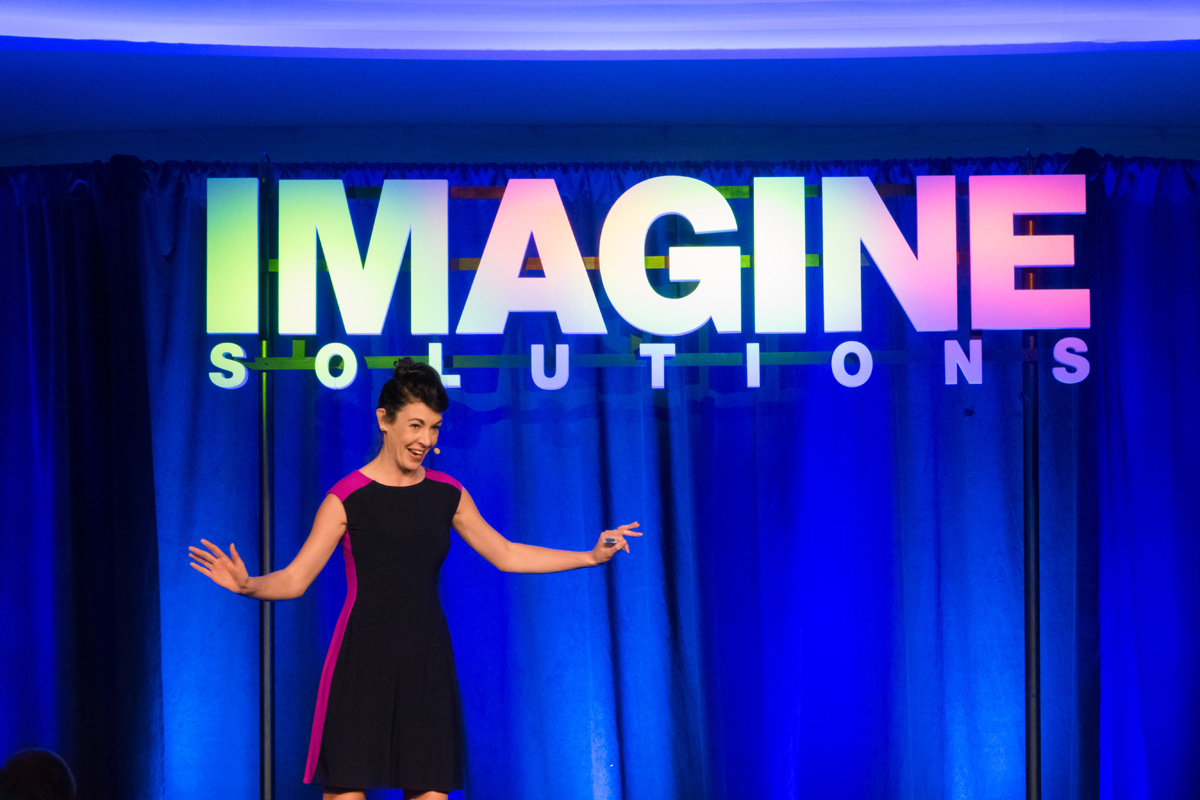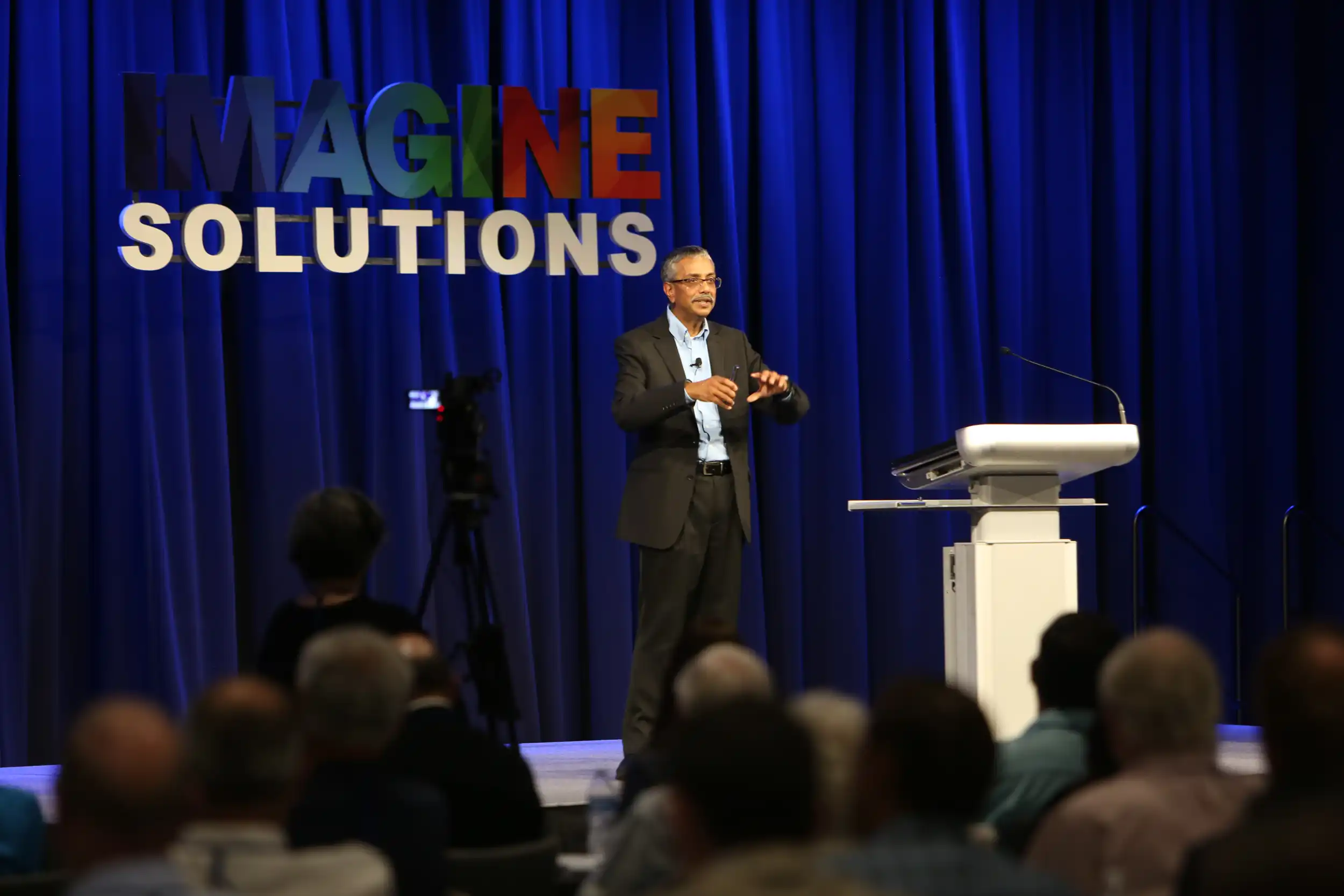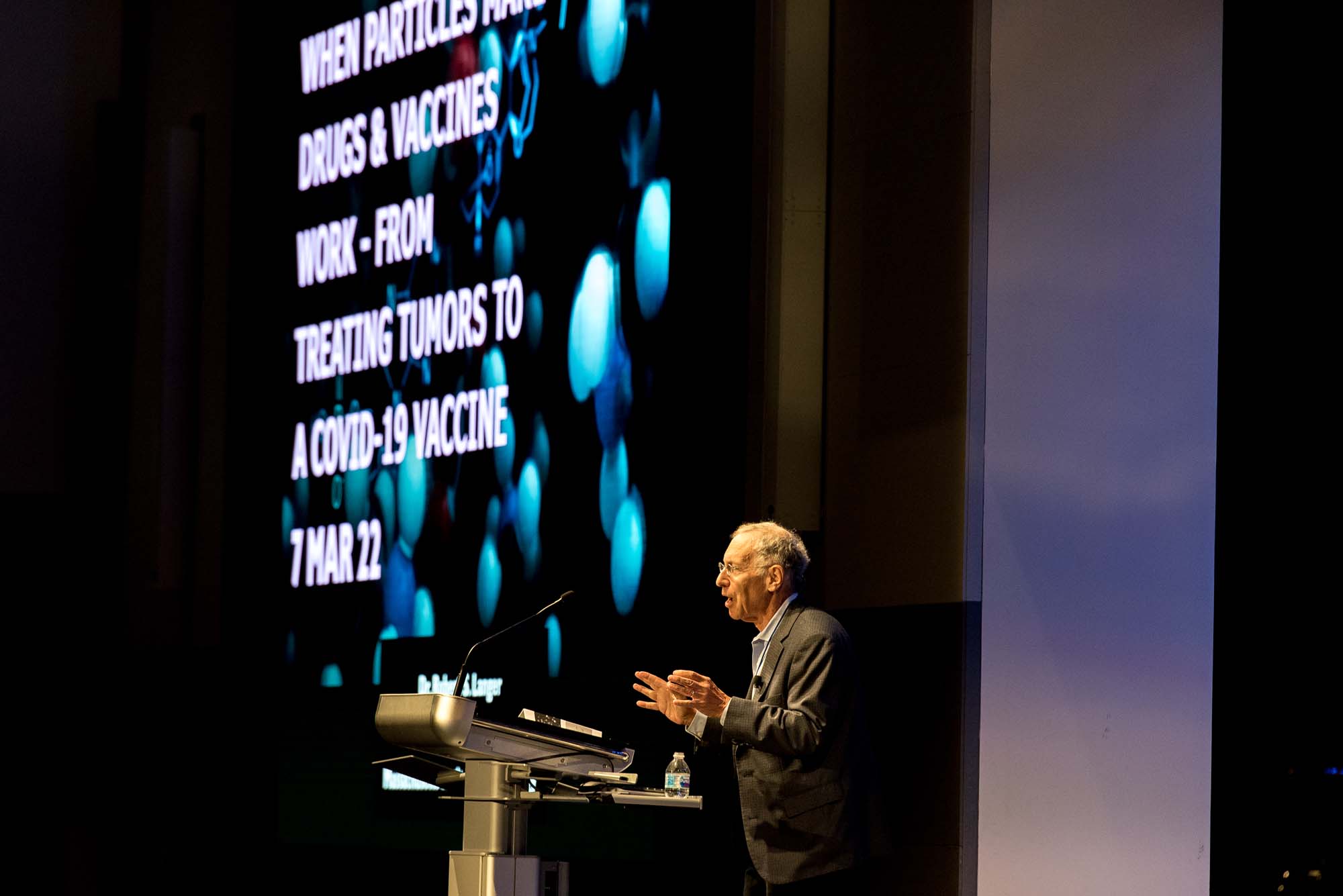The Importance of Science
Sean B. Carroll, Ph.D., is an internationally recognized scientist, award-winning author, and an Emmy-winning executive producer. Carroll is the head of HHMI Tangled Bank Studios and Vice President of HHMI’s Science & Educational Media Department.
00.26
[Applause] [Music] so [Music] uh we're going to talk about turning
01.00
science uh into stories and it by doing so creating a greater impact for what science is and can do sean carroll is an extremely interesting fellow he's vice president for science education of the howard hughes medical institute probably the largest and most esteemed in the in the country if not the world he's the head of its tangled bank studios which makes documentaries that tell fascinating stories about science and scientists and discoveries he's distinguished university professor of biology at the university of maryland he's a member of the national academy of sciences author of ten books and a two-time emmy award-winning film producer please welcome sean carroll thank you tyler thank you randy and the imagine solutions team and the sponsors and arthrex for uh putting on this great event today so one theme of this gathering is to explore how we can awaken america to the excitement
02.01
of science and technology so i'm going to talk about science's place in our culture and one way to elevate it so as tyler sort of uh implied so the last 10 years i've spent my time with one foot firmly in the scientific community and one foot in show business two different worlds um and what i want to share with you today is sort of what i some of what i know about science and some of what i've learned about storytelling and i think the first step is to communicate how lucky we are as scientists to do what we do to be able to spend our lives peering into the secrets of nature others are not so fortunate i want you to listen carefully to one of the youngsters in this clip from an old british tv show [Music]
03.06
[Music] school dances and not even the slightest mildest consideration that that would go into something it wasn't this driving thing that the minute you hit your teens you got to be famous what are your two names yours is james page and david house and you're just learning to play the guitar yes from a teacher do you play anything except skiffle yes spanish and dancing do you as well can you move on what are you going to do when you leave school take a skiffle no i want to do uh well biological research well alas young james page he had to pursue an alternative career to biological research if jimmy page had his druthers he would have spent his life in a lab just like me but he had to make a living going from
04.00
town to town trying to make enough money to afford a shirt with buttons you know and there's no tenure in led zeppelin so his ship sailed all right so most people i think would agree with the characterization of scientists as seekers but i'm hoping to convince you that deep down under this veneer of rigorous rationality some of us are actually thrill seekers with more in common with rock musicians than you might expect and i want to share with you how you all can get those same thrills or at least share those thrills that science can offer now i was awakened to this realization of our thrill-seeking nature by an experience outside of my lab a few years ago i was in paris researching a book on the french scientist jacques minnow it turns out maneau was the co-founder of the field we call molecular biology won the nobel prize
05.00
1965. and one december morning i found myself at the prefecture of police in paris near notre dame no i was not being charged but i think my habit of washing down my morning croissant with a diet coke was probably a violation of some official ordinance yeah but i was there to comb their archives to try to fill a big hole in a story that i was working on because i knew that minnow was one of the early joiners of the french resistance in the fall of 1940 and had a very close call with a gestapo but it was a complete mystery is how they caught on to him so i went to the archives and i requested a lot of records from late 1940 an attendant brought them in huge stack put them on a big wooden table and i started combing through them and there were other people there in the archives kind of like a little library room doing their own research and i'm going through folder after folder just hoping i can find mention of jacques minnow somewhere and i open up one folder and i find
06.01
a sheet of paper with a list of names on it and it turns out the list of names were obtained from a suspect who was caught printing one of the first resistance newsletters and there 15 names down on that list was jacques mannell i let out a yelp got some stern glances from my neighbors but i got even better because i decided to go through all the stacks i could find and i found a dossier with mino's name on it and inside the dossier on tissue thin paper was the handwritten account of a detective's search of minnows laboratory and home mongio this is storytellers gold an intensely pleasurable feeling just washed over me and that's the feeling i want to talk about today maybe that's the first revelation is scientists have feelings uh you can take that one home with you okay i was asking myself what this feeling when i felt this before and it turns out
07.03
over more than 30 years in the lab on no more than a handful of occasions i had such a pleasurable moment and on each of those cases it was when i looked into a microscope and saw something that i had never imagined before but once i saw it it was clear that we had bolted into new territory this was the thrill of discovery in this case it was figuring out how animals make their bodies how butterflies get their beautiful patterns things like this but this thrill of discovery i realized it's it's not restricted to laboratory or to digging in archives listen to how paul simon described his experience in an interview with charlie rose some years ago when do you feel that well you you never know when you're going to feel it either it'll kill it'll come at you and it's not in my experience it's it's not a con it's not a common occurrence but there have been times when you know i've written a line that i had no idea i
08.01
was about to write that just made me stop and like you know lose my breath or or cry you know and i didn't know why and i mean i don't mean to say this as if i'm bragging about how how good it was because most of the time i really thought how did that happen you know and and and the first time that i that i can remember it and then even though i didn't recognize what it was was when i wrote bridge over trouble water the not the whole song but just the melody line like a bridge over trouble water i will lay me down you know one second it didn't exist the next six seconds it existed it was there and i was just shocked and i thought that's a that's so much better than i usually write
09.00
i wonder where that came from feel very satisfied and you get this feeling that's very close to bliss and i i attribute that to so you know to some chemical reaction in the brain that says oh wow wow i'm very happy with what how often have you felt that well enough to make me want to be a songwriter yeah for or enough to be a scientist for the rest of your life so the thrill that simon's describing the same thrill of discovery that scientists may be lucky enough to experience so what are those elements that simon identified there rare unexpected sometimes sudden and that feeling of bliss now it turns out it can happen to anyone in science anyone working in the enterprise in 1979 linda morabito was a 25 year old engineer working the late shift on the voyager mission to the outer planets at the jet propulsion laboratory nasa's
10.01
lab this is how she describes her experience one night i was on the mission as a mission navigator and our job involved just looking back over the shoulder of the spacecraft to say one more picture of the realm of jupiter so it wasn't high priority work it was an optical navigation image and linda saw this strange thing on the on the limb an enormous object emerged enormous and the first thing i said to myself what is that and i'm like it looks like another satellite in the picture emerging from behind io an object that size at that range at that distance would have been seen from earth it was sufficiently large i felt with certainty it's the only thing i knew that i was seeing something that had never been seen before
11.00
this was an umbrella shaped plume rising 250 kilometers above the surface of iowa with volcanic activity [Music] i found the very first evidence of active volcanism on a world beyond earth something that no one had seen before it's what we live for of course sometimes scientists are trying to solve a specific specific problem or puzzle so here's perhaps at least a more familiar discovery to you related by jim watson the cavendish shop was to build us some tin models and that took too long and you know finally in desperation i made some other cardboard i began moving them around and i wanted an arrangement
12.01
you know where i had a big and a small molecule and so how did you do it somehow you had to form link bonds so here is uh a and here's t and i wanted this hydrogen to point directly at this nitrogen so i had something like this oh so then i went to the the pear and one of this nitrogen put to this one and it went like this whoa they look the same and you can put one right on top of the other we knew we could just you know even if we go up to the ceiling we're building a tiny fraction of the molecule
13.02
100 million of these base pairs in one molecule all fitting into this wonderful symmetry which we saw you know the morning of february 28 1953. [Music] sudden breakthrough that pretty much arguably brought on the revolution in modern biology with respect to solving puzzles it was paul simon who nailed it again creating a puzzle uh that you solve uh you know or or that you want to solve that that eventually brings you to an oh that's what it is for i think it's so pleasurable that it releases some kind of serotonin wash through your brain that that you just want to do it again
14.01
you really want to do it again it's it's it's addictive to create something that that gives you pleasure and you made it now you want to do it again okay i think you got the feeling right but the neurochemistry wrong i think it was a wash of dopamine i think i think the serotonin was was washing through his brain we wrote hello darkness my old friend but this feeling again exactly echoed by carolyn porko a member of the voyager imaging team and later head of the cassini imaging team to saturn we become junkies who this is how you become a planetary flyby junkie it's because you've gone through one of them and you just know it's the greatest feeling and you want to keep doing it again and again but those moments they're unpredictable and they're rare how can they be repeated and few people in this world are artists of the caliber of paul simon or scientists fortunate enough to be on an epic mission well fortunately for you and i these
15.00
thrills need not be so rare they can be repeated it was actually jacques mino's friend the writer albert camus who knew the secret and he wrote that the first thing for a writer to learn is the art of transposing what he feels into what he wants to make others feel one of the most important features of the human mind is our ability to feel what others feel and we do this most effectively through story the main reason why anyone writes or reads stories tells or listens to stories makes or listens to music makes or watches films is to evoke or experience emotion every creative artist knows this and i wish every scientist understood it now these emotions now they don't come solely from discovery um
16.00
they can come from other experiences and it's often the lives of scientists are launched by some emotional connection or some emotional experience hear what the late alan rabinowitz told listen to eminent ecologist mary power tell her story from our film the serengeti rules when i was a child i was severely myopic from who knows what age i didn't know that you could see leaves on a tree from the ground but something happened before i got glasses and that was that i was let loose with a mask and snorkel for the first time i saw things clearly because of the refraction of the water
17.01
[Music] you can imagine how beautiful it would be when you see detail that you'd never known you could see what were pond weeds above the water were forests of stems under the water and in this little forest there would be sunfish then occasionally a big larger predator like a pickerel or a perch or a bass goes by [Music] it was a flashbulb moment as they say where i just had to be underwater
18.00
looking at life that way for the rest of my life [Music] these stories of scientific discovery they're our literature they're our music they're one of our contributions in addition to technology and medicine to our culture contributions that can keep on giving thrills for generations so to elevate science in our culture we have to tell our stories and there's actually partly a concern over sort of the disappearance of science from mass media airwaves that my organization started at film studio you also have to recognize that our stories have to compete with all kinds of stories every kind of story for people's hearts as well as their minds good science stories they have special
19.00
characteristics they have the power to astonish us to inspire us and to provoke our sense of awe and wonder so i want to close tonight with one more clip um it's an example of to tell these stories we have to use everything in the filmmaker's arsenal cinematography characters and well okay you'll see so i want you to imagine yourself now as a 10 or 11 year old person um about the same age as mary power in that clip your parents have brought you to a science museum you're sitting down to watch a movie about a young girl who's discovering the wonders of nature in her own backyard [Music]
20.00
[Music] the wood ducklings are just a day old and are about to face one of the biggest tests of their lives a monumental leap of faith [Music] [Music]
21.49
and i guess the last thing i learned was that every thrill is just a little bit better with little tom petty thanks for listening [Applause]
22.08
you

